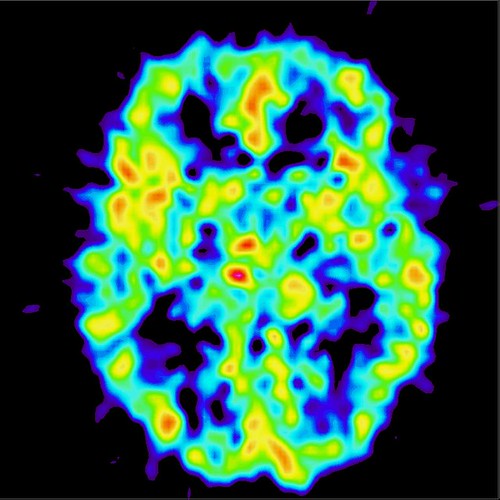 PLoS | Abstract: Despite the abundance of evidence that human perception is penetrated by beliefs and expectations, scientific research so far has entirely neglected the possible impact of religious background on attention. Here we show that Dutch Calvinists and atheists, brought up in the same country and culture and controlled for race, intelligence, sex, and age, differ with respect to the way they attend to and process the global and local features of complex visual stimuli: Calvinists attend less to global aspects of perceived events, which fits with the idea that people's attentional processing style reflects possible biases rewarded by their religious belief system.So what can we surmise here? Controlled for the factors that would provoke intense excitement in Big Don, investigators have identified qualitative differences in the quality and quantity of human consciousness.
PLoS | Abstract: Despite the abundance of evidence that human perception is penetrated by beliefs and expectations, scientific research so far has entirely neglected the possible impact of religious background on attention. Here we show that Dutch Calvinists and atheists, brought up in the same country and culture and controlled for race, intelligence, sex, and age, differ with respect to the way they attend to and process the global and local features of complex visual stimuli: Calvinists attend less to global aspects of perceived events, which fits with the idea that people's attentional processing style reflects possible biases rewarded by their religious belief system.So what can we surmise here? Controlled for the factors that would provoke intense excitement in Big Don, investigators have identified qualitative differences in the quality and quantity of human consciousness.Sciam Digest - Religion might literally influence how you view the world. Scientists in the Netherlands compared Dutch Calvinists with Dutch atheists, looking for any effects potentially imposed on thinking by the neo-Calvinist concept of sphere sovereignty, which emphasizes that each sector of society has its own responsibilities and authorities. The researchers hypothesize that Calvinists might therefore not be as good as atheists at seeing the big picture. Participants were shown images of large rectangles or squares that each consisted of smaller rectangles or squares. In some tests, volunteers had to quickly identify the shapes of the smaller parts; in others, the larger wholes. The Calvinists scored slightly but significantly lower than atheists did in correctly identifying whole images. The investigators plan to study other religions for similar influences.There's no point in examining other "religions" in search of similar influences. The religion is not in fact influencing the outcomes, the fact that certain individuals are drawn to specific formations, and that they share certain underlying baseline proclivities is what is really in question here. The researchers have finally hit upon my other controversial theory about the organization of the human world. What they've stumbled upon here in Calvinist garb is an underlying human neurotype.


0 comments:
Post a Comment